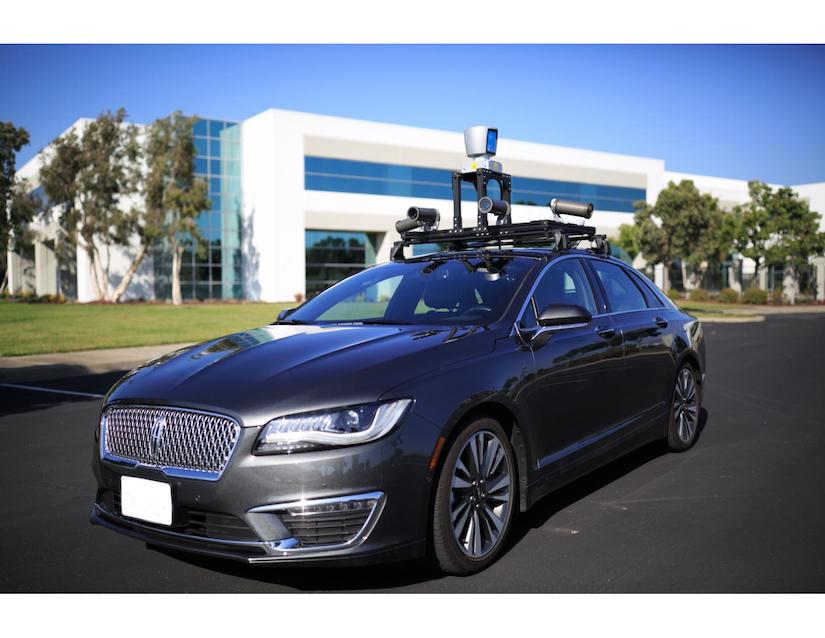 EMERGING TECH
EMERGING TECH
 EMERGING TECH
EMERGING TECH
 EMERGING TECH
EMERGING TECH
Self-driving car technology startup Pony.ai said today it has raised an unusually large early-stage funding round of $112 million in an effort to pull out in front of many well-funded rivals.
The Series A round was jointly led by Morningside Ventures and Legend Capital. Seed round lead investor Sequoia China and IDG Capital also participated in the round, as well as Hongtai Capital, Legend Star, Puhua Capital, Polaris Capital, DCM Ventures, Comcast Ventures, Silicon Valley Future Capital and other unnamed funding sources.
Founded in late 2016, Pony.ai is building level 4 autonomy technology, a grade of self-driving car technology that delivers “fully autonomous” navigation. Per the U.S. Department of Transportation’s National Highway Traffic Safety Administration level system, that means it’s “designed to perform all safety-critical driving functions and monitor roadway conditions for an entire trip.” The autonomous technology at this level is limited to the “operational design domain” of the vehicle—meaning it does not cover every driving scenario equal to that of a human driver, whereas level 5 autonomous technology would.
The round is all the more interesting because Pony.ai isn’t well-known. But it is led by former engineers from both Google X (now Waymo) and Baidu Inc. Co-founder and Chief Executive Officer James Peng was previously chief architect at Baidu’s self-driving car division and before that a Google employee. Tiancheng Lou, co-founder and chief technology officer, previously worked on autonomous driving at both Google X and Baidu.
In an interview with SiliconANGLE, Peng said the large round was a reflection of the highly competitive market. “The competition for talent is fierce,” he said. “Also, self-driving car development is costly, so we need to ramp up quickly.” The company has nearly 70 people on staff so far, a figure that is expected to rise rapidly.
With offices in both China and in Fremont near Silicon Valley, the company started testing self-driving cars in San Francisco Bay area roads following approval in June, with a number of testing videos released in October showing the technology quickly reaching mature levels:
How far along has now been revealed for the first time, with Pony.ai saying that they will begin operating an autonomous fleet in the southern Chinese city of Guangzhou in the first quarter. IDG Capital partner Young Guo said he believes Pony.ai has the best autonomous-driving team in China.
Peng positioned Pony.ai’s technology as lying in the middle ground in a field where many rivals are depending less on rules set up on advance to guide the cars than on machine learning technology that enables the systems to learn on their own. “We use the rules as a base and then we use machine learning on top,” he said. “One drawback of machine learning is uncertainty. With a stoplight, you have to stop; that’s the rule, there’s no need to learn.”
Pony.ai is also using multiple types of sensors from LiDAR to cameras to ultrasound, which Peng called “sensor fusion.” Although it’s buying those off-the-shelf, Peng said the company might consider designing its own.
The company is designing both hardware and software, including its own operating system that Peng said gives it a tenfold improvement in performance over existing software, but has no plans to build its own cars. Peng said Pony.ai has forged partnerships with several car manufacturers and hopes to sign contracts in the next month or two, both established companies and “newcomers,” with which it plans to design new types of cars made for autonomous driving.
Pony.ai isn’t the only startup competing with the giants. Last week, Aurora Innovation Inc. of Palo Alto, California, announced partnerships with Volkswagen AG and Hyundai Motor Co., which said they hope to put the company’s technology into self-driving cars by 2021. Aurora’s chief executive is Chris Urmson, who helped start Google’s program and led the effort starting in 2014.
With reporting from Robert Hof
Support our mission to keep content open and free by engaging with theCUBE community. Join theCUBE’s Alumni Trust Network, where technology leaders connect, share intelligence and create opportunities.
Founded by tech visionaries John Furrier and Dave Vellante, SiliconANGLE Media has built a dynamic ecosystem of industry-leading digital media brands that reach 15+ million elite tech professionals. Our new proprietary theCUBE AI Video Cloud is breaking ground in audience interaction, leveraging theCUBEai.com neural network to help technology companies make data-driven decisions and stay at the forefront of industry conversations.